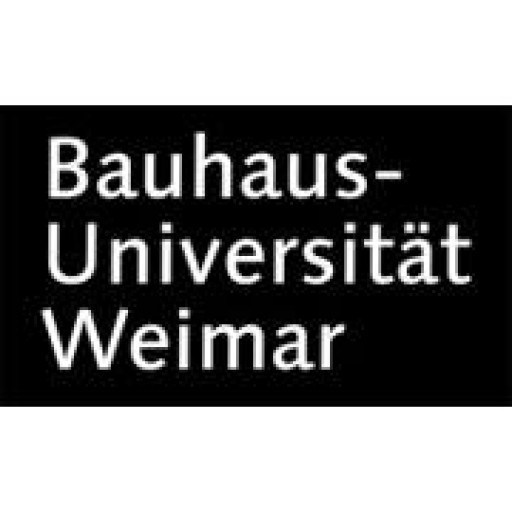Photos of university / #tu_berlin
Program Description:
The Master's degree program in Environmental Planning at Technische Universität Berlin is a comprehensive interdisciplinary program designed to prepare students for the complex challenges of sustainable development and environmental management in urban and rural areas. This program emphasizes the integration of ecological, economic, and social aspects of environmental planning to foster a holistic understanding of sustainable spatial development. Students will delve into advanced topics such as land use planning, environmental impact assessment, urban design, resource management, and policy development, equipping them with the practical skills and theoretical knowledge necessary to contribute effectively to environmental conservation and sustainable urbanization.
Throughout the program, students engage in hands-on projects, seminars, and internships that facilitate real-world application of theoretical concepts. They will learn to utilize modern planning tools and technologies, including Geographic Information Systems (GIS) and spatial analysis software, to make informed decisions about land use and resource allocation. The curriculum also emphasizes stakeholder participation and communication skills, ensuring graduates can effectively collaborate with government agencies, private sector entities, non-governmental organizations, and communities.
The international orientation of the program prepares students for global challenges and opportunities in environmental planning. Multidisciplinary collaboration is a core element, encouraging students to work across disciplines and cultural contexts. Graduates of this program are well-equipped for careers in urban and regional planning offices, environmental consultancy firms, governmental agencies, research institutions, and international organizations working towards sustainable development goals.
The Master's in Environmental Planning at Technische Universität Berlin combines academic excellence with practical relevance, fostering innovative solutions to environmental challenges and promoting sustainable development principles. With a strong focus on research and practical implementation, the program seeks to contribute to the development of environmentally responsible planning practices that balance ecological integrity with societal needs.
Educational organisation
The essentials of environmental planning are conveyed in mandatory core courses in the first semester. They are deepened and expanded in two study projects which form the core of the programme. In each project, students will work in small groups on a research topic involving an innovative planning task in a practice-oriented manner.The large choice of additional mandatory core courses allows for a specialisation according to individual desires. Since the programme is closely related to the Master's programmes of landscape architecture and urban ecosystem sciences, exchange with these programmes is guaranteed.
Core Courses:
Instruments of Landscape Planning in National and International Contexts, Fundamental Concepts and Frameworks of Landscape Planning, Environmental Impact Assessment (EIA) and Strategic Environmental Assessment (SEA), Impact Mitigation Regulations, Institutional Economics, Integration of Sector Policy, Comparative International Environmental Policy, GIS-Applications for Environmental Planning, GIS-Supported Landscape Analysis and Assessment
Examples of Electives:
1. Methods of Environmental Impact Assessment
2. Analysing International Environmental Policy
3. Remote Sensing of Environment
4. Environmental Planning and Society
The programme is internationally oriented, which means that mandatory core classes and most of the elective courses are taught in English. Thus, it will become a vivid platform for meeting and interacting between German and foreign students in the field of environmental planning.
Course objectives
Graduates with a Master's degree in environmental planning are qualified for work in a national or international environment. Generally, Master's students will become engaged in organisations and planning offices operating in Europe and overseas, take on professional positions in public administrations, or choose to pursue a scientific academic career.Language requirements
Prospective students have to prove that their English skills meet the level of B2 of the Common European Framework (CEF), TOEFL: 79 points (Internet-based) or equivalent are required.There is no official requirement for a certain level of German skills for the application. However, it is recommended to have at least basic German skills (B1) and to be willing to expand these skills during the studies at TU Berlin. This would allow students to choose from classes that are only offered in German (classes from other Master's programmes as choice modules). At TU Berlin, the ZEMS (Zentraleinrichtung Moderne Sprachen) offers language classes ranging from level A2 to advanced levels and special classes for planning and architecture students, which students can take and which can also count as electives.
Academic requirements
In order to be eligible for the Master's programme, prospective students have to meet the following requirements ("Zugangsvoraussetzungen") as regulated in the Study and Examination Regulations ("Studien- und Prüfungsordnung") for the Master Environmental Planning: undergraduate degree (Bachelor or "Diplom") from a recognised university in one of the following fields:Landscape Planning and Landscape Architecture, Urban and Regional Planning, Spatial Planning, Geography, Geo Sciences, Biology with a major in ecology or nature conservation ("Biologie mit Schwerpunkt Ökologie oder Naturschutz"), Political Sciences with relations to environmental planning or related disciplines.
English language skills at level B2 (TOEFL: 79 points (Internet-based) or equivalent are required). A minimum of basic German language skills are highly recommended, as several courses (electives) are not offered in English.
Enrolment fees
Upon enrolment, students have to pay a semester fee composed of the social contribution to the student union, a contribution to the student body, and the enrolment fee. Furthermore, students have to pay for a public transportation ticket.This adds up to 250 EUR to 300 EUR per semester.
Costs of living
Expenses for housing and living in Berlin will depend on the lifestyle and personal preferences. Berlin allows students to live quite well on a modest budget. Rent prices have increased during recent years (approx. 300 EUR to 500 EUR for a room in a shared flat).If you are not insured through a private health insurance in your home country and if you are not an EU citizen or you do not come from a country that has signed a social security agreement with Germany, you will need approx. 60 EUR per month for basic student health coverage.
Environmental Planning at Technische Universität Berlin is a comprehensive master’s degree program designed to prepare students for sustainable development and environmental management within urban and regional contexts. The program combines theoretical knowledge with practical skills, equipping graduates to address complex environmental challenges through innovative planning strategies. Emphasizing interdisciplinary approaches, the curriculum integrates principles from urban planning, environmental sciences, landscape architecture, and policy analysis, fostering a holistic understanding of sustainable spatial development. Students engage in coursework that covers topics such as land use planning, environmental impact assessment, climate change adaptation, resource conservation, and legal frameworks relevant to environmental planning. The program also offers practical training through project work, workshops, and collaborations with industry partners, enabling students to apply their knowledge to real-world scenarios. Additionally, research components encourage analytical thinking and problem-solving, preparing graduates for careers in public sector planning agencies, consultancy firms, non-governmental organizations, and academia. The program’s international orientation attracts students from diverse backgrounds, promoting multicultural exchange and global networking. Graduates of Environmental Planning at TU Berlin are equipped with the technical expertise, strategic thinking, and communication skills necessary to develop innovative solutions for sustainable urban environments. The program aims to foster leaders in environmental planning who can contribute to creating resilient, eco-friendly, and socially equitable cities that meet the future needs of society.








